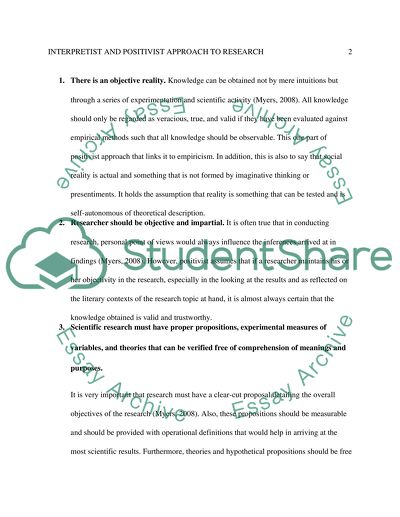Outline the assumptions and methods of interpretist and positivist Essay. Retrieved from https://studentshare.org/psychology/1495817-outline-the-assumptions-and-methods-of
Outline the Assumptions and Methods of Interpretist and Positivist Essay. https://studentshare.org/psychology/1495817-outline-the-assumptions-and-methods-of.


